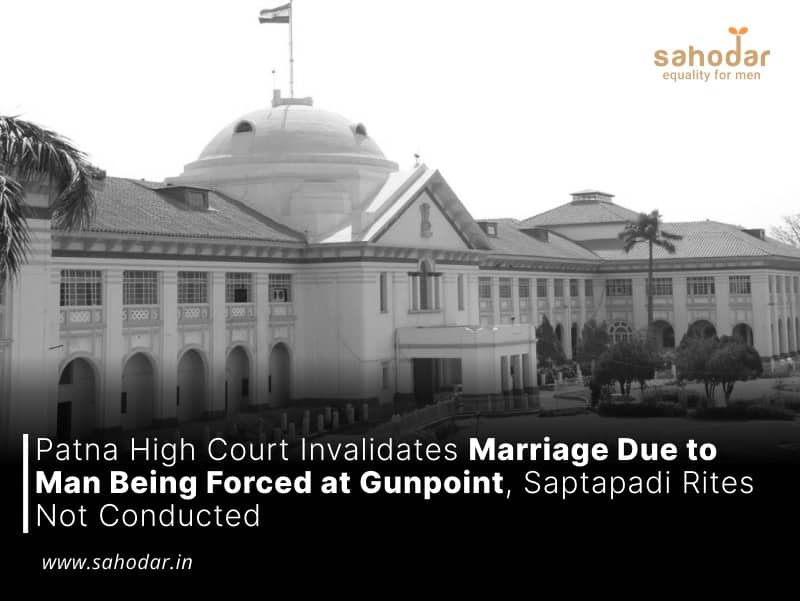The Court noted that a traditional Hindu marriage is not a valid marriage without the completion of ‘Saptapadi’ and ‘Datta Homam.’
The Patna High Court has recently invalidated a marriage, citing the coercion of the groom at gunpoint and the absence of the Saptapadi (seven steps around a sacred fire) ceremony as grounds. Justices PB Bajanthri and Arun Kumar Jha of the Bench highlighted that, under the Hindu Marriage Act, 1955, a Hindu marriage is deemed incomplete without the performance of the Saptapadi ritual by the bride and groom.
“From bare perusal of the aforesaid provision (of the Hindu Marriage Act), it is obvious that when such rites and ceremonies including Saptapadi the marriage becomes complete and binding, when seventh step is taken. Conversely, if ‘saptapadi’ has not been completed, the marriage would not be considered to be complete and binding,” the Court said.
“From bare perusal of the aforesaid provision (of the Hindu Marriage Act), it is obvious that when such rites and ceremonies including Saptapadi the marriage becomes complete and binding, when seventh step is taken. Conversely, if ‘saptapadi’ has not been completed, the marriage would not be considered to be complete and binding,” the Court said.
In this context, the High Court relied on a 2001 Supreme Court judgment that stipulated the necessity of ‘Saptapadi’ and ‘Datta Homam’ (offering of ghee into a sacred fire) for the validity of a traditional Hindu marriage. The case at hand involved an Army signalman who asserted that he was coerced into a “marriage” after his uncle was abducted during prayers at a Lakhisarai temple on June 30, 2013.
On that day, under the threat of a firearm, he was compelled to apply vermilion (sindhoor/sindhur) on the bride’s forehead and partake in a “marriage” devoid of any accompanying rituals, as per the petitioner’s claims. Despite his uncle’s attempts to file a police complaint, they allegedly refused to address the matter. Consequently, the petitioner pursued legal action by filing a criminal complaint before the Chief Judicial Magistrate’s court in Lakhisarai, Bihar.
In addition to the criminal complaint, the petitioner sought the annulment of the forced marriage through a family court. However, his plea was dismissed on January 27, 2020, prompting the petitioner to seek relief from the High Court.
On November 10, the High Court granted the petitioner’s plea, determining that the marriage ceremony had been imposed on him. The bride contested the plea, asserting that it was a regular arranged marriage. Nevertheless, the Court found the marriage ceremony to be far from normal.
Various factors contributed to the Court’s skepticism, including the revelation that the officiating Pandit (priest) lacked crucial knowledge, such as the location of the wedding. Additionally, the Court noted the absence of any relatives of the groom at the ceremony, except for his allegedly kidnapped uncle. The Court also expressed doubts about the photographs of the “purported marriage,” deeming them inadequately exhibited and admitted as evidence in the trial court.
“Moreover, the photographs on their own could not reveal anything,” the Court observed.
The High Court determined that the family court’s rationale for rejecting the petitioner’s plea was flawed. Moreover, the High Court rejected arguments claiming an unwarranted delay in filing the petition.

